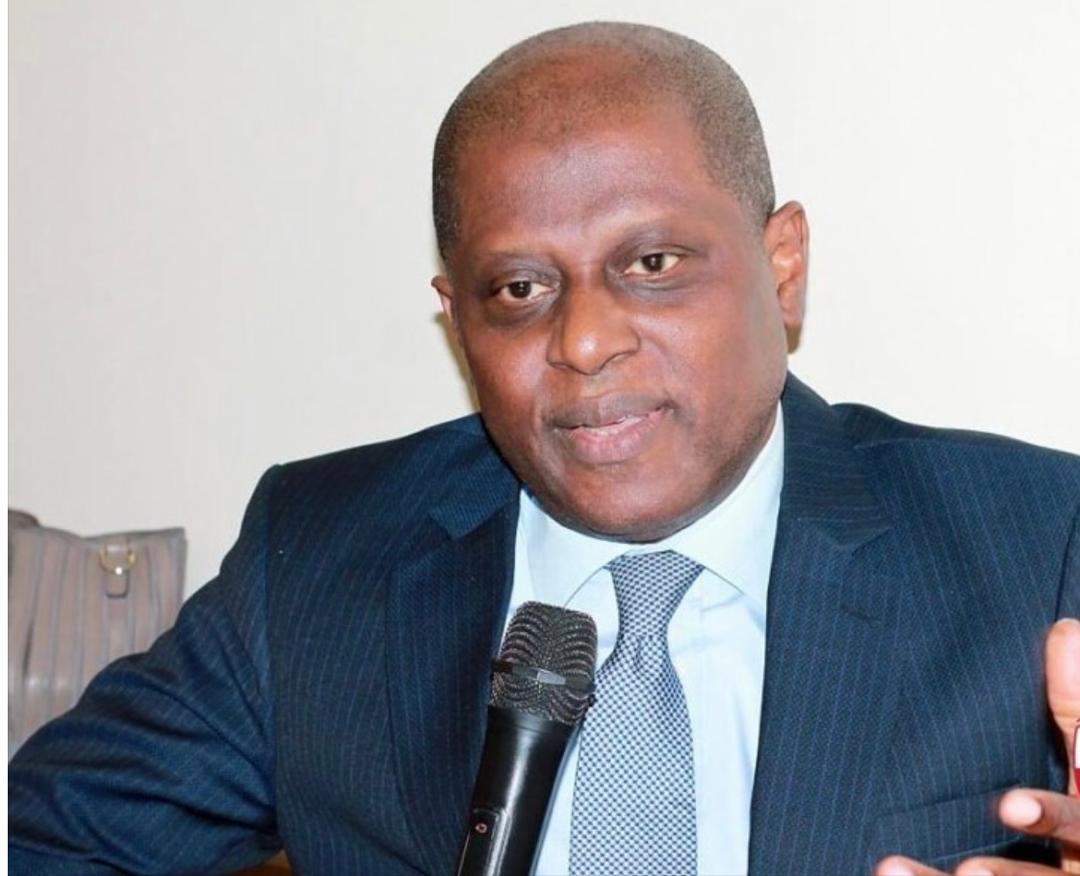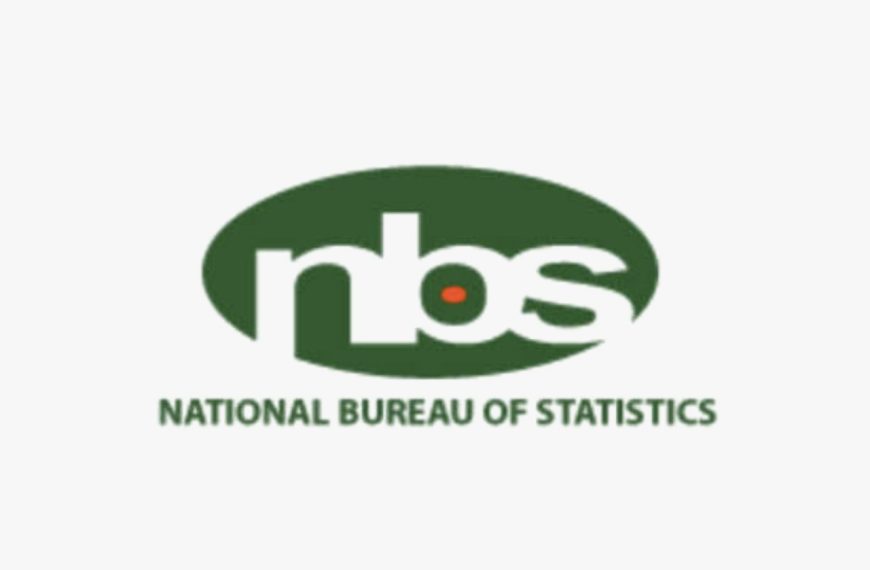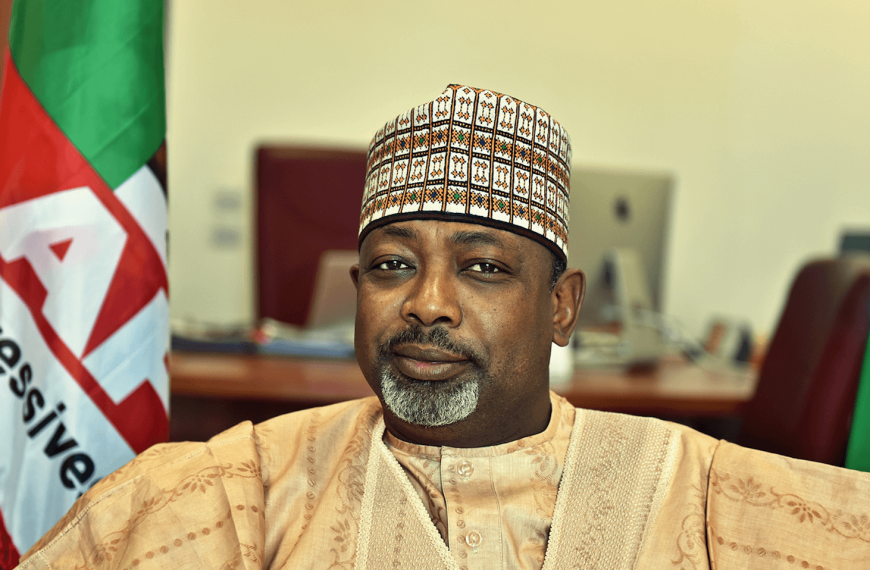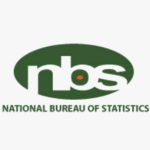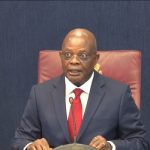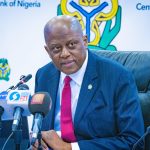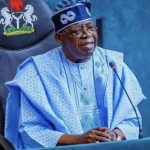The Governor of Central Bank of Nigeria (CBN), Mr. Olayemi Cardoso, yesterday said despite Naira’s volatility in recent years, the international community believed the currency is now reflective of its real rate and currently more competitive.
The CBN governor also said recent reforms in the nation’s Foreign Exchange (FX) segment have continued to attract foreign investors into the economy, vowing that the monetary authority will do everything possible to ensure that current inflows continue.
Speaking at the 2025 Monetary Policy Forum with the theme, “Managing the Disinflation Process” in Abuja, the CBN governor noted that foreign investors would always be willing to invest in an environment where returns are attractive.
This came on a day the Executive Chairman, Federal Inland Revenue Service (FIRS), Dr. Zaccheus Adedeji, disclosed that the service generated a record N21.6 trillion revenues in 2024, surpassing its N19.4 trillion target by 111.6 per cent.
Speaking at the opening of the service’s 2025 Management Retreat in Abuja, he said the achievement was no mean feat, attributing the performance to the resilience, professionalism, and dedication of staff, as well as the “visionary leadership and a strategic focus on the pillars of people, technology, and processes”.
Adedeji said non-oil taxes exceeded targets by 28 per cent and contributed 73.4 per cent of total revenue, adding that the result will “forever be recorded in the history” of the service.
Meanwhile, the federal government has set a revenue target of N25.2 trillion for the FIRS in 2025.
Cardoso however, noted that cautious optimism was emerging globally around potential improvements in capital flows to emerging markets, as advanced economies transition toward monetary easing.
Also speaking at the forum, the Minister of Budget and Economic Planning, Senator Abubakar Bagudu, commended the cooperation between the fiscal and monetary policy authorities, saying it is in the best interest of the country’s economy.
The minister said the collaboration had been aided by the wealth of experience of its drivers, including the Minister of Finance and Coordinating Minister of the Economy, Mr. Wale Edun, and the CBN governor, who worked with President Bola Tinubu in the past.
He further acknowledged the possible divergence between fiscal and monetary policy but expressed satisfaction with how the two authorities have moderated their priorities.
Cardoso however, noted that Nigeria’s ability to attract these inflows will depend on investor confidence in our domestic reforms, particularly those ensuring macroeconomic stability and delivering positive real returns on investment.
Cardoso also said without the decisive policy interventions undertaken by the bank to reign in rising prices, inflation could have reached 42.81 per cent by December 2024.
He noted that the liquidity injections associated with unorthodox monetary policies, particularly since the COVID-19 pandemic, had created a significant overhang, adding that while these measures were intended to cushion immediate shocks, they did not translate into commensurate productivity growth, fueling inflationary pressures and heightened foreign exchange volatility.
He said excess naira liquidity in the system had amplified demand-driven inflation, further exacerbated by supply-side constraints stemming from structural deficits.
Nonetheless, he said the country had turned a corner, pointing out that disinflation was within reach.
He said, “However, we must remain committed to bold, coordinated policy measures to consolidate our progress”, adding that for inflation to be defeated, it required serious collaboration between the fiscal and monetary side.
The central bank governor said these dynamics underscored the importance of a disciplined and coordinated approach to monetary policy to restore stability.
However, the Monetary Policy Committee (MPC) had in response initiated a tightening cycle using orthodox approaches.
Throughout 2024, the bank implemented several bold policy measures across six MPC meetings, including raising the Monetary Policy Rate (MPR) by a cumulative 875 basis points to 27.50 percent, increasing the Cash Reserve Ratio (CRR) of Other Depository Corporations (ODCs) by 1,750 basis points to 50 percent, and adjusting the asymmetric corridor around the MPR.
Cardoso pointed out that the past year presented significant challenges, including persistent inflationary pressures exacerbated by global and domestic shocks.
He noted that despite these headwinds, the CBN’s commitment to price and monetary stability had yielded measurable progress.
He said, “We have seen relative stability in the foreign exchange market, a narrowing exchange rate disparity, and a rising external reserves of over $40 billion as of December 2024.”
Specifically, Cardoso stressed that inflation erodes purchasing power, discourages investment, and exacerbates inequality, adding that managing the disinflation process requires a careful balance of policies that mitigate short-term costs while anchoring long-term stability.
He said the CBN was fully committed to ensuring price stability while minimising adverse effects on growth and livelihoods.
Cardoso noted that beyond monetary policy, the bank undertook critical reforms to strengthen the financial system and ensure macroeconomic stability.
He said the unified multiple exchange rate window was established to enhance efficiency in the FX market. According to him, the reform yielded tangible results, with remittances through International Money Transfer Operators (IMTOS) rising 79.4 per cent in the first three quarters of 2024 to $4.18 billion, compared to $2.33 billion in the same period of 2023.
He said the bank also cleared a backlog of FX commitments totaling $7.0 billion, restoring market confidence and improving FX liquidity.
He said the central bank also lifted restrictions on 41 items previously banned from access to the official FX market, a measure introduced in 2015, as well as introduced new minimum capital requirements for banks, effective by March 2026, to strengthen the resilience and global competitiveness of Nigeria’s banking sector, positioning it to support the ambition of a $1 trillion economy.
The CBN among other things, launched the WeFI initiative under the National Financial Inclusion Strategy, designed to bridge the gender gap in financial access, empowering women through financial services, education, and digital tools.
He said, “These reforms reflect our commitment to creating an enabling environment for inclusive economic development. However, achieving macroeconomic stability requires sustained vigilance and a proactive monetary policy stance.”
He said the forum underscored the CBN’s unwavering commitment to improving communication, fostering dialogue, and collaborating on the critical issues shaping monetary policy.
Thisday

